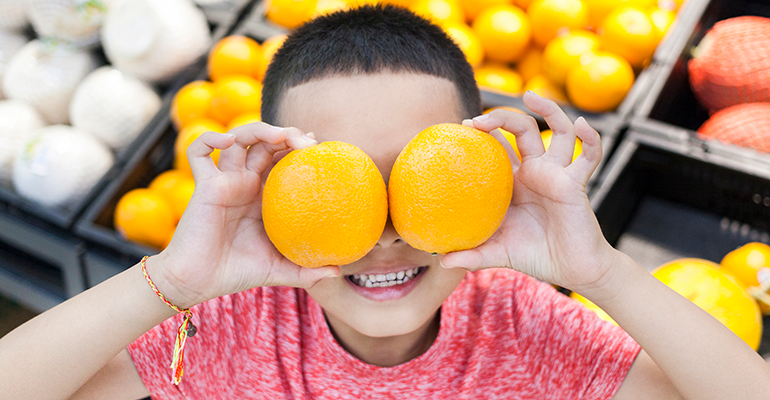News
25 Mar 2024
Using a playful and colourful approach with storytelling can encourage children to try new varieties of fruit and vegetables, according to an ongoing Wageningen University study called ‘Miffy eats the rainbow’.
Netherlands-based Wageningen University & Research launched the ‘Miffy’s eat the rainbow’ marketing initiative to encourage fruit and vegetable consumption among children. The campaign and study into the role Miffy’s story and marketing efforts have on child nutrition may have the potential to bolster public health and company’s marketing efforts while spurring new product developments (NPDs).

Drivers behind the marketing campaign and study
The ‘Miffy eats the rainbow’ method aims to encourage children to try new types of fruits and vegetables in a playful manner. Researchers in the Netherlands are currently conducting a study to explore the method’s effectiveness in encouraging children to increase their intake of fruits and vegetables. The campaign is designed to make healthy eating an engaging and enjoyable experience for children.
Researchers at the Dutch University have collaborated with Mercis, the rights agency and publisher of Dick Bruna’s books, to develop the creative approach. The study delves into whether parents can encourage their children to try new varieties of fruits and vegetables through a playful and colourful approach.
Drawing on storytelling and characters, the study may also offer insights into the impact creativity and playfulness have on promoting nutrition in children and people consuming different food groups.
Increasing fruit and vegetable intake
Wageningen University & Research’s personnel detail that although consuming an adequate amount of fruits and vegetables sets the foundation for a healthy diet, many children in the Netherlands do not consume sufficient quantities of the nutritious food group.
Studies show that approximately 95% of children between the ages of four and eleven don’t meet the daily recommended intake of vegetables, the University said. Furthermore, 2 out of 5 children currently meet the recommended intake for fruits and vegetables, indicating that, on average, these children eat less than half the recommended amount of vegetables.
In exploring ‘Miffy’s eat the rainbow’ initiative, the researchers highlight the importance of a healthy diet to prevent weight and health issues in children. Upon announcing the study, the researchers detail how, between 2018 and 2021, 12% of children aged between two and 12 were overweight, while 3% were considered obese.
The ‘Miffy eats the rainbow’ method
Researchers at the University want to investigate whether the ‘Miffy eats the rainbow’ method helps children learn to eat more, and various types of, fruit and vegetables. The marketing campaign encourages parents and caregivers to read the Miffy story to their children, which encourages people to eat fruits and vegetables that are ‘all the colours of the rainbow’.
 © Wageningen University & Research
© Wageningen University & Research
Following the method, parents and caregivers place a sticker on a poster indicating the specific colour of the fruit or vegetable a child eats. By providing a visual system to depict a child’s fruit and vegetable intake, the branding highlights how “the child eats all the colours of the rainbow, just like Miffy.”
Trialling the concept, ‘Miffy eats the rainbow’ stickers are currently available in the Netherlands until the 23rd of March and can be placed on the matching poster. Parents or caregivers can download the ‘Miffy eats the rainbow’ poster, complete a questionnaire and participate in the study.
The creativity and nutrition connection
The research study, which is currently underway, raises the question of how public health and brands’ marketing strategies can embrace play, creativity and imagination to encourage nutrition and encourage the intake of fruit and vegetables.
In a recent 2024 narrative review study, researchers explored the role personality traits play in healthy habits and behaviours. They found that through their analysis, various studies have indicated that personality traits affect the eating habits and types of diets that individuals choose, including their preference for healthy or unhealthy foods.
Primary-school-aged children inspire their peers and families to eat more vegetables in the KiiDSAY project, a 2024 study has found. Engaging in qualitative research with children, the researchers concluded that children’s inputs hold significant potential for informing future interventions, especially when designing or refining school-based nutrition programmes and future research and practice.
The children in the study provided suggestions on how to promote vegetable consumption, which included cooking activities at-home and in school settings using recipes that creatively hide, mask or enhance vegetables’ taste, using positive role models and creating supportive school environments.
